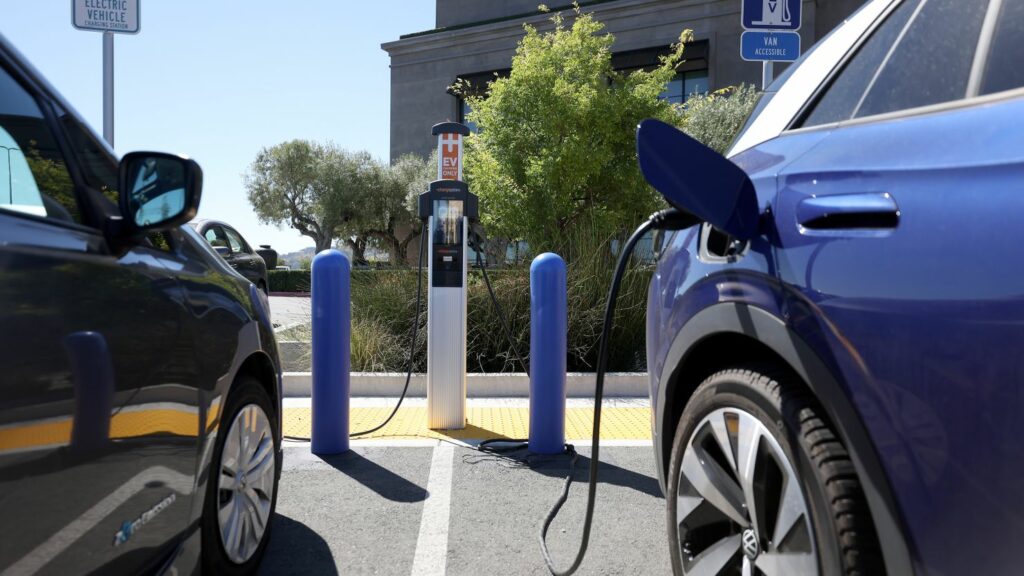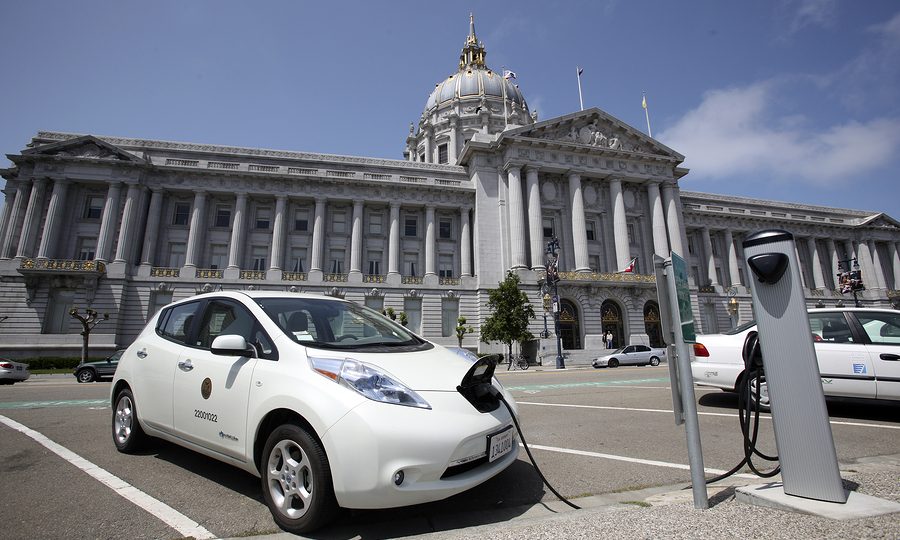In Britain, the Big Green Blob has budged and may actually let you buy a gasoline-powered car until 2035 instead of 2030, as well as a water heater that works and for some lucky folks, a furnace too. What can Prime Minister Sunak be thinking? Possibly something along the lines of “angry voters will turn on me if I ruin their lives for nothing”. Which is actually a vindication of self-government even if, as we complained back in August, the bien-pensant activists formerly known as journalists at the Washington Post ran an analysis that framed it thusly: “As the world boils, a backlash to climate action gains strength”. Boo. Backlash. Boiling. What’s wrong with the public? Other than that they are now paying attention to the harsh real-world consequences of trendy climate policy, and making politicians do it too.
For starters, the world is not “boiling”. If it were those people not yet reduced to stew would be demanding action not protesting expensive heating bills (which they wouldn’t need anyway). For another, “backlash” is a loaded term implying primitive violence rather than reasoned dissent. Hence no left-wing political pressure is ever a “backlash”; instead it is a courageous and principled stand. But the fact is that even alarmists are now noticing that in many countries there is considerable pushback against radical climate policies that threaten economic ruin based on bad science. And why wouldn’t there be?
When politicians bow to public pressure it doesn’t just look cynical, it often is. And in this case Sunak appears to be thrashing about opportunistically (the Guardian of course jeered “See Sunak’s green retreat for what it is: a ruthless short-term electoral gamble”) even if in his case the opportunism seems more aspirational than effective. But it’s a feature not a bug of democracy that even politicians who want to do things people hate sometimes have to do things people like instead.
When one of us was making a documentary on climate change six years ago they were astounded to find general public indifference to the fact that European governments were casually banning the cars nearly everyone drives. It seemed undemocratic as well as uneconomic, not least because instead of vigorous debate designed to win public support, the political parties were in a cabal to impose these policies regardless of election outcomes. But the ban was then more than a decade away and to be frank most people had more pressing things to worry about.
Not any more. And if it is now a Conservative administration reversing wacky climate policy they never should have endorsed in the first place, well, better late than never, and if it’s only for fear of losing seats, we’ll take it. Even if they say they’re only delaying it five years, on the grounds that they still think they can be for everything all at once, including aiming for Net Zero while avoiding raising energy costs. (On the other hand, the fact that American auto workers are now striking partly to prevent the switch to EVs because they take less labor to make really does strike us as frankly selfish, especially since their unions claim to believe in climate breakdown.)
As for Britain’s Labour Party, they say they’d move the ICE (Internal Combustion Engine) car ban back up to 2030. But by the time they’re in power, that target will be awfully close and although politicians rarely break promises except while in office, we shall see. Given the number of governments now tiptoeing back toward fossil fuels, or at least slithering away from ambitious goals they never had a realistic plan for meeting, Labour if they win will probably find that the public won’t tolerate keeping those pledges and find some way to say they are while actually not doing it.
When it comes to such policies the public should try to be a bit more alert and less suddenly reactive. Or perhaps politicians should be more honest with themselves about the actual willingness of the public to pay the costs of grand climate schemes. As the Wall Street Journal editorial board noted in discussing the British government’s policy wavering, “Cutting carbon emissions polls well in the abstract, but voters revolt when they have to pay for it.” As is true in many other countries as well.
The activists find the peasants revolting. After admitting that “This week saw potentially significant rollbacks in emissions reduction commitments by Britain and the EU, diluting net zero pledges and scaling back legislation”, Reuters Sustainable Switch found an unbiased person to denounce the ignorance of the unwashed:
“‘This looks chaotic and not the way long-term policy should be made around important issues, with emergency cabinet meetings and investors spooked,’ said Jess Ralston, energy analyst at the Energy and Climate Intelligence Unit. ‘The implication that any of these policies were going to affect the cost of living here and now is untrue. In fact, the PM has sided with landlords over renters, putting their energy bills and cost of living up by ducking the improvement of rules on energy efficiency,’ she added.”
But it is absurd to claim that such policies were going to reduce the cost of living when skyrocketing energy bills have already caused misery and death in Britain and the EU. Or indeed to continue the pretense that the “energy transition” means glittering high-tech high-paid jobs in such quantities that unemployment becomes as unfamiliar as poverty. Governments including that of Germany have learned the hard way that it just ain’t so and the subject is increasingly not taboo.
As Reuters “Sustainable Switch” wrote, in a story whose email teaser said “Greenlash surges across Europe”, “Analysts say politicians are increasingly tapping into worries about the expense of green policies ahead of regional, national and European Union elections over the next year-and-a-half.”
To be sure, in his latest sulphurous blast UN Secretary-General António Guterres did blither “We can still build a world of clear air, green jobs, and affordable clean power for all”. Sure, and after lunch, world peace. Whereas on this planet the news is slowly getting around that climate utopianism is costly and impossible. Even the New York Times “Climate Forward” conceded that at its own annual live event in Manhattan (be still my snoring tonsils) where their writers “talked with some of the climate sector’s most vital newsmakers” like, oh dear, Al Gore, the general feeling was that “Resolving the climate crisis is the hardest joint project humanity has ever taken on.” Not easy. Harder than winning World War II. And:
“On that much, the policymakers, activists and business leaders seemed to agree. But there are still big differences of opinion on how to get the job done. And in the meantime, the cognitive dissonance between hope and despair is enough to make everyone’s head spin.”
When the spinning stops we’d like to think some of them will be facing forward. We’ll see.



Good article AND hopefully we will see a roll back on energy costs, reduction of utility bills, gas pricing (natural & petroleum) …. Not holding my breath as the ass-bite politicians want your money one way or another. Thank you for staying vigilant with reporting this global fraud …. Please keep it up and a cup of coffee is on the way👍🏼
As a Brit I welcome what looks like a 'Power to the People' moment, long may it continue😀 thanks John R.
Funny, the same people told us the transition would be cheap, wouldn’t even notice it, no inconvenience whatsoever.
Incompetent liars, one and all
It's easy enough to get people to agree to far-off changes if skillfully put to them: "We're saving the planet and there will be well-paying green jobs for everyone". It's only when the harsh realities hit them in the face that they realise they've been had. This is known as the Tigger syndrome (see Winnie-the poo): they don't really know what they want but they most certainly know what they don't want when they see it.
The Green Ponzi Scheme is slowly being exposed.Hence the backtracking on unrealistic climate and energy policies.Called political expediency.
It helps that, given the BRICs are unabashedly pursuing prosperity by adopting high density energy meaning coal, petroleum, hydro and nuclear which makes net zero even more impossible than even western magical thinking, the idea of pursuing western post modern energy poverty is essentially the same as a compound of self flagellators being laughed at by passers by.